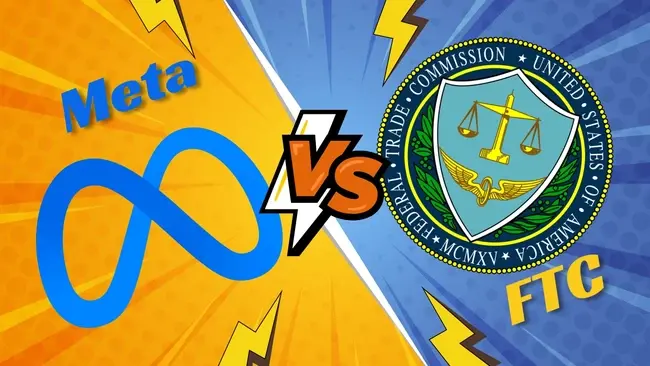The Federal Trade Commission (FTC) has threatened to ban Meta from profiting from minors’ data after accusing the tech giant of failing to implement proper parental controls.
In a press release, the US data privacy regulator said that the Facebook and Instagram owners had violated a string of child privacy laws, as well as the 2019 $5 billion privacy agreement it had reached with the agency for its role in the Cambridge Analytics scandal.
The US regulator’s move is the first step in the process of changing that landmark agreement and introducing new measures to protect children’s data.
“Facebook has repeatedly violated its privacy promises,” said Samuel Levine, Director of the FTC’s consumer protection bureau. “The company’s recklessness has put young users at risk and Facebook needs to answer for its failures.”
The FTC said that an independent investigation had found "several gaps and weaknesses in Facebook's privacy program" that posed "substantial risks to the public,” citing that users aged under 13 were still allowed to engage in chats with contacts without their parent's consent.
It also found that Meta had continued to give third-party apps access to private information after promising to cut off access for inactive users as part of its agreement.
The regulator’s blanket proposal called for a ban that prevents Meta platforms including Facebook, Instagram and Whatsapp from profiting from the data of children under 18 years of age.
It also seeks to prevent the company from launching new products or services across these platforms without the approval of an independent privacy assessor and would require explicit consent for users for any new uses of facial recognition technology.

“A Political Stunt”
Meta was quick to hit back against the FTC’s claims. It accused the regulator of overstepping its authority in what Meta spokesperson Andy Stone called nothing more than a “political stunt.”
Meta's statement on the FTC's political stunt. pic.twitter.com/XEPHvriKFY
— Andy Stone (@andymstone) May 3, 2023
He claimed the FTC was attempting to “usurp the authority of Congress to set industry-wide standards, and had singled out Meta “while allowing Chinese companies like TikTok to operate without constraint on American soil.”
"Despite three years of continual engagement with the FTC around our agreement, they provided no opportunity to discuss this new, totally unprecedented theory.”
“FTC Chair Lina Khan’s insistence on using any measure – however baseless – to antagonise American business has reached a new low.
In a blog post published later that day, Meta mirrored Stone’s remarks as it defended itself against the FTC’s accusations, stating that it had spent “vast resources building and implementing an industry-leading privacy program".
“None of these issues warrants the drastic changes the FTC is seeking just three years into our decades-long agreement – and that the FTC lacks unilateral authority to impose. We will vigorously fight this action and expect to prevail,” the blog post read.
US Big Tech under fire
This is not the first time the FTC has clashed with Meta over concerns about the way the tech giant handles its users’ privacy.
The first time was in 2012. Facebook agreed in 2019 to pay a record $5 billion fine to resolve allegations that it violated a 2012 agreement by not clarifying how much control users had over their personal data. That order was eventually finalised in 2020.
Meta leaders were forced to testify in front of Congress after revelations from whistleblower Frances Haugen that the company knew it steered young users towards damaging content that could have severe mental health impacts.
Meta is just one of the big tech companies to come under fire from regulators over its handling of user data.
In March, TikTok CEO Zi Chew appeared before congress to defend TikTok’s future. Lawmakers were considering issuing an outright ban on the video-sharing app due to its handling of user data, and lack of measures to safeguard the privacy of its users.
As the Washington Post reports, Meta may have joined Congress in pushing for that ban. Meta CEO Mark Zuckerberg reportedly paid a firm called Targeted Victory to push messages saying TikTok.
The firm claimed TikTok is a threat to children and orchestrated a nationwide campaign which had the primary goal of turning the public against the app – ironically mirroring the FTC’s accusations against Meta.







Comments ( 0 )